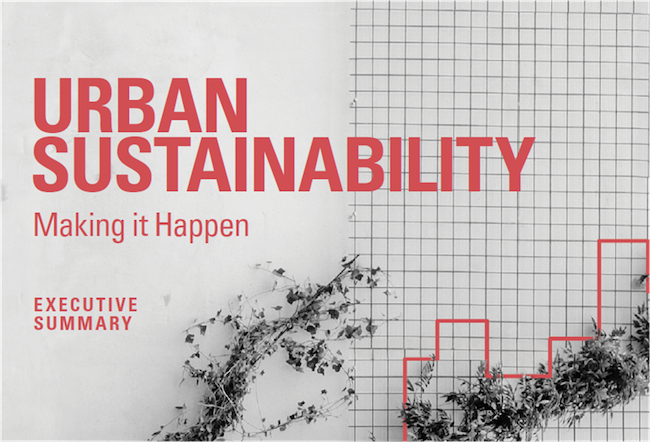Over three years of research on urban sustainability at the Jerusalem Institute for Policy Research in Israel, it became apparent to us that sharing is an innovative and promising avenue for creating a lifestyle that is far more sustainable than our current lifestyles. Israel has experience with sharing in the rural context, through the establishment of the agricultural "kibbutzim" model. Kibbutz were collective communities — the political and cultural centers of the population in those days — but their communal structure could not compete with the neo-liberal economy which developed in the 1980s, transforming to an industrial and service economy, with a major emphasis today on technology.
Currently, one sector of the population that practices a traditional form of sharing is the ultra orthodox Jewish community, which organizes sharing of funds and equipment between its members, such as wedding dresses and baby items. Meanwhile, some Israelis are also sharing medical appliances to assist people with temporary disabilities as well as the elderly.
The current models of sharing between strangers through digital platforms, however, are arising out of  economic efficiency, with lower costs for adequate comfort, convenience, and accessibility. Our Urban Sustainability research team recognized that Millennials in central urban areas were living a highly digital, more sustainable lifestyle. Unlike their parents' generation, they didn't feel the need to demonstrate success by buying and displaying material goods. Our researchers looked at how the concepts of sharing and the commercial and community models of sharing could be applied to all sections of the population and age groups — and how they could be promoted by local governments.
economic efficiency, with lower costs for adequate comfort, convenience, and accessibility. Our Urban Sustainability research team recognized that Millennials in central urban areas were living a highly digital, more sustainable lifestyle. Unlike their parents' generation, they didn't feel the need to demonstrate success by buying and displaying material goods. Our researchers looked at how the concepts of sharing and the commercial and community models of sharing could be applied to all sections of the population and age groups — and how they could be promoted by local governments.
We followed our Initial theoretical studies and a review of worldwide examples of the application of the sharing economy with several pilot projects or labs to better understand opportunities and barriers to adopting the sharing economy, beyond the rapidly expanding commercial platforms that were already in operation. In collaboration with Holon and Ashdod municipalities, we tested shared transport to enable children to join extracurricular activities at sports and cultural centers, shared travel to work for municipal employees, and shared use of baby and kids equipment.

We also tested the advantages of shared spaces for public services between local governmental departments, in cooperation with the Jerusalem municipality. Our researchers reviewed the benefits of shared outdoor spaces and found that public spaces such as parks, bus stops, and city squares were not fulfilling the multiple uses they could provide for the community by incorporating digital services like wifi and technologies like augmented reality. We also found that they weren't equipped at transforming common spaces temporarily, according to community needs.
The case studies enabled us to identify many common difficulties and barriers which are preventing the expansion of sharing spaces, assets, equipment, and services. The lack of trust in strangers — and coping with risks of damage and liability — were particularly apparent. We also noticed that there were constraints imposed by archaic regulations, which may have been relevant in the past but hindered the creation of creative and sustainable lifestyles today, including regulations around zoning and land use and requirements around safety and welfare. Some are necessary as in the past but some could be changed by local municipalities and some through national legislations.
The final report of our research project suggests to policymakers in central and local governments how they could take measures to promote sharing on commercial and community platforms and how to remove constraints and barriers to their development. The report emphasizes the importance of building community networks, increasing trust, and creating common affiliation to some form of group organization on the understanding that changes in consumer behavior are largely achieved within a group with common social norms and practices.
Millennials with relatively high socio-economic profiles have been leading the participation in the sharing economy, but it could be highly beneficial to senior citizens and people from lower socio-economic communities. Our team would like to go further in these three directions of research into sharing:
-
Create a different form of household unit for affordable housing
-
Enable seniors to enjoy inclusiveness and release underutilized built space
-
Enable supplementary income in low-income communities
Our team thanks Neal Gorenflo, executive director of Shareable, who was the keynote speaker at our conference this year. Gorenflo's insights highly contributed to the team's understanding of sharing. We welcome comments and would be delighted to make contacts with anyone working in similar areas of interest. The English summary of the final report is available here.
All images courtesy of the Urban Sustainability research team at the Jerusalem Institute for Policy Research in Israel









